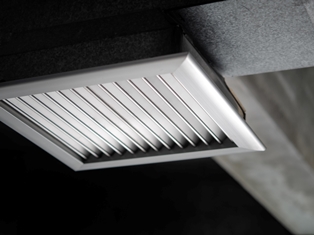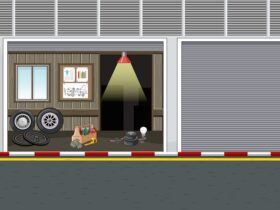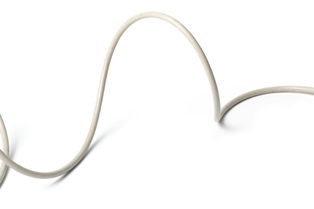In the realm of modern HVAC systems, ensuring optimal air distribution is paramount for both comfort and efficiency. One of the key components responsible for this is the HVAC diffuser. Often overlooked but undeniably essential, HVAC diffusers play a crucial role in maintaining indoor air quality, temperature regulation, and overall comfort levels within residential, commercial, and industrial spaces.
Understanding the Role of HVAC Diffusers
HVAC diffusers are designed to distribute air evenly throughout a space, ensuring that conditioned air reaches every corner effectively. They serve as the endpoint of the HVAC system, where cooled or heated air is released into the environment. Diffusers come in various shapes, sizes, and designs, each tailored to meet specific airflow requirements and aesthetic preferences.
Types of HVAC Diffusers
Linear Diffusers
Linear diffusers are characterized by their elongated shape, often installed along walls or ceilings. They provide a sleek and modern look while efficiently distributing air in a linear pattern, making them ideal for open spaces such as offices, lobbies, and retail establishments.
Square Diffusers
Square diffusers feature a more traditional design, typically mounted on ceilings. They disperse air in a radial pattern, ensuring uniform airflow throughout the room. Square diffusers are versatile and commonly used in residential and commercial settings where a blend of functionality and aesthetics is desired.
Round Diffusers
Round diffusers offer a visually appealing option for air distribution. With their circular design, they create a gentle airflow pattern that minimizes drafts and promotes comfort. Round diffusers are often found in residential applications, as well as in upscale commercial spaces where aesthetics are of prime importance.
Swirl Diffusers
Swirl diffusers are engineered to deliver air in a swirling motion, providing enhanced mixing and ventilation within a space. They offer superior performance in environments where air quality and thermal comfort are critical, such as healthcare facilities, laboratories, and clean rooms.
Pros and Cons of HVAC Diffusers
When considering the installation of HVAC diffusers in your residential, commercial, or industrial space, it’s essential to weigh the pros and cons to make an informed decision. Here’s a breakdown of the advantages and disadvantages of using HVAC diffusers:
Pros:
- Improved Air Distribution:
HVAC diffusers ensure even distribution of conditioned air throughout the space, eliminating hot or cold spots and maintaining consistent comfort levels.
- Enhanced Comfort:
By promoting proper airflow and minimizing drafts, diffusers contribute to a more comfortable indoor environment for occupants.
- Energy Efficiency:
Efficient air distribution achieved through HVAC diffusers helps optimize the performance of the HVAC system, reducing energy consumption and lowering utility costs.
- Noise Reduction:
Many diffusers are designed with noise-reducing features, ensuring quiet operation and minimizing disturbances in occupied spaces.
- Aesthetic Appeal:
With a wide range of styles and finishes available, diffusers can complement any interior décor scheme, adding a touch of elegance to the space.
Cons:
- Initial Cost:
The upfront cost of purchasing and installing HVAC diffusers can be relatively high, especially for high-end models or large-scale installations.
- Maintenance Requirements:
Diffusers require regular cleaning and maintenance to ensure optimal performance, which may involve additional time and effort.
- Space Limitations:
Certain types of diffusers may have space limitations, requiring careful consideration of the room layout and installation requirements.
- Compatibility Issues:
Compatibility with existing HVAC systems and ductwork may be a concern when selecting diffusers, potentially requiring modifications or additional components.
- Airflow Restrictions:
Improperly sized or installed diffusers may restrict airflow, leading to inefficiencies and reduced performance of the HVAC system.
Choosing the Right HVAC Diffuser
Selecting the appropriate HVAC diffuser requires careful consideration of several factors, including:
- Airflow Requirements:
Determine the volume of air that needs to be distributed to effectively condition the space.
- Room Size and Layout:
Consider the dimensions and layout of the room to ensure proper air distribution and coverage.
- Aesthetic Preferences:
Choose a diffuser style and finish that complements the overall design aesthetic of the space.
Noise Considerations: Opt for diffusers with noise-reducing features if quiet operation is a priority.
Installation and Maintenance Tips
Proper installation and regular maintenance are essential to ensure optimal performance and longevity of HVAC diffusers. Here are some tips to keep in mind:
- Professional Installation:
Hire a qualified HVAC technician to install diffusers correctly, ensuring proper alignment and airflow balance.
- Regular Cleaning:
Clean diffusers periodically to remove dust, dirt, and debris that can obstruct airflow and diminish performance.
- Inspect for Damage:
Routinely inspect diffusers for any signs of damage or wear, and promptly address any issues to prevent airflow disruptions.
Frequently Asked Questions (FAQs) about HVAC Diffusers
Answer: HVAC diffusers should be cleaned regularly to maintain optimal performance and indoor air quality. It’s recommended to clean them at least once every six months. However, in environments with high dust or pollutant levels, more frequent cleaning may be necessary.
Answer: Yes, HVAC diffusers can be painted to match the room decor. It’s essential to use paint specifically designed for metal surfaces and HVAC applications to ensure durability and proper airflow. Before painting, make sure to clean the diffusers thoroughly and allow them to dry completely.
Answer: While HVAC diffusers can be installed by homeowners, professional installation is recommended to ensure proper alignment, airflow balance, and compatibility with existing HVAC systems. HVAC technicians have the expertise and tools necessary to install diffusers correctly, minimizing the risk of performance issues or damage.
Answer: The lifespan of HVAC diffusers varies depending on factors such as usage, environmental conditions, and maintenance practices. On average, well-maintained diffusers can last anywhere from 10 to 20 years. However, regular inspection and maintenance are essential to prolonging their lifespan and ensuring optimal performance.
Answer: There are several steps you can take to improve airflow from HVAC diffusers in specific areas of your home:
Check for Obstructions: Ensure that furniture, curtains, or other objects are not blocking the airflow from the diffusers.
Adjust Damper Settings: Most diffusers have adjustable dampers that allow you to control airflow. Experiment with adjusting the damper settings to increase airflow to desired areas.
Clean or Replace Air Filters: Clogged or dirty air filters can restrict airflow, so make sure to clean or replace them regularly.
Consider Supplemental Fans: If airflow remains insufficient, consider installing supplemental fans or air circulators to improve circulation in specific areas.
Consult HVAC Professional: If airflow issues persist, consult with an HVAC professional to assess the system and recommend appropriate solutions for improving airflow and comfort levels.
By implementing these strategies, you can optimize airflow from HVAC diffusers and enhance comfort in specific areas of your home.
Conclusion
In summary, HVAC diffusers play a critical role in maximizing comfort and efficiency within indoor spaces. By facilitating optimal air distribution, diffusers contribute to a healthier, more comfortable environment while promoting energy savings and reducing operational costs. With various types and designs available, selecting the right HVAC diffuser ensures an ideal blend of functionality, aesthetics, and performance for any application.










Find Us on Socials